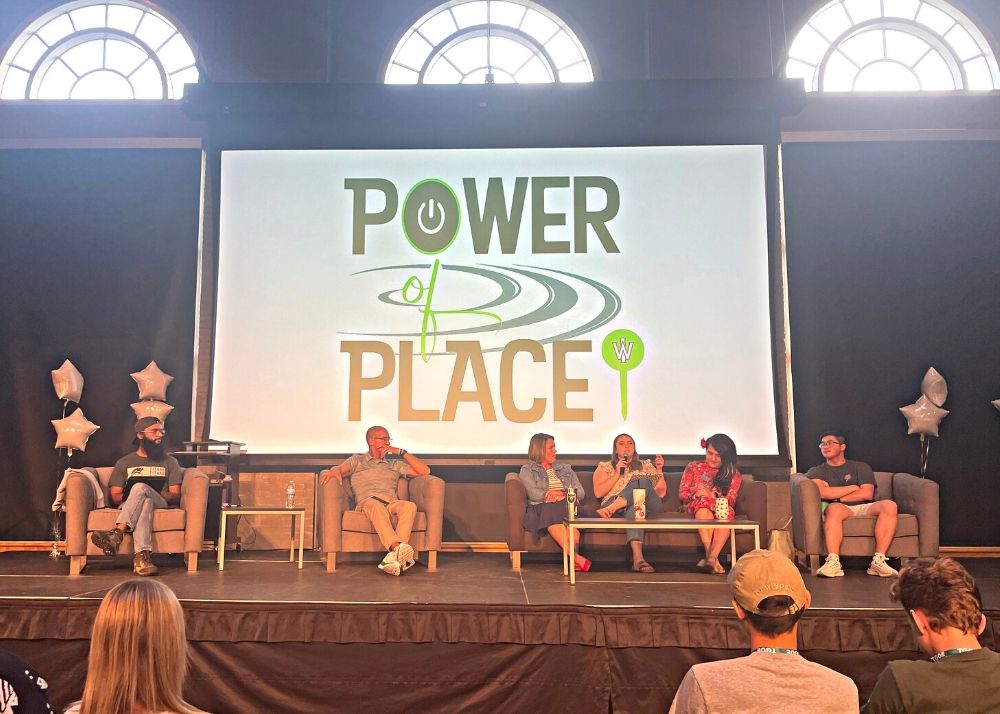Human Library Event Brings IWU Community Closer
Sept. 19, 2022
BLOOMINGTON, Ill. — Members of the Illinois Wesleyan University community opened up to share their personal stories with new students at the start of the semester through a Human Library activity.
The event took place as part of Turning Titan Orientation. A human library invites students to “go beyond the cover, to look past the outward appearances and focus more on the stories within the books,” said associate dean of students and organizer of this event, Kevin Carey.

Facilitators shared their stories with new students, going beyond just the physical to the inner aspects of their identity.
Four faculty and staff members and one student “courageously shared their stories as books this year. Individuals discussed racial identity in their upbringing, intersectional identities of the self, learning disabilities in college and living as a transgender woman,” Carey said.
“Having campus community members serve as books allows students a sneak peak into the various, often intersecting, rich stories of those who are willing to take the risk of being vulnerable,” said associate professor of nursing Amanda Hopkins, a facilitator for the event.
Students then had the opportunity to ask questions of the panel and to then write their own stories. Students used the template of a “ Where I’m From” poem to engage deeply with their own identities.
This event coincided with the University's annual theme: Power of Place.
“We all come from different places and experiences and there can be a real power in that when individuals come together to share and listen. To continue to make Illinois Wesleyan University a place of significance, people must be able to bring with them their stories and lived experiences,” Carey said.
This is the first year that the human library has been a part of Turning Titan since 2019. Carey was excited to bring the event back.
“It continues to be a goal during Turning Titan and beyond to create opportunities to learn about identity formations in life,” said Carey. “We know when students are able to connect individually and collectively, a better sense of belonging can be created.”
By Maria Harmon ’23